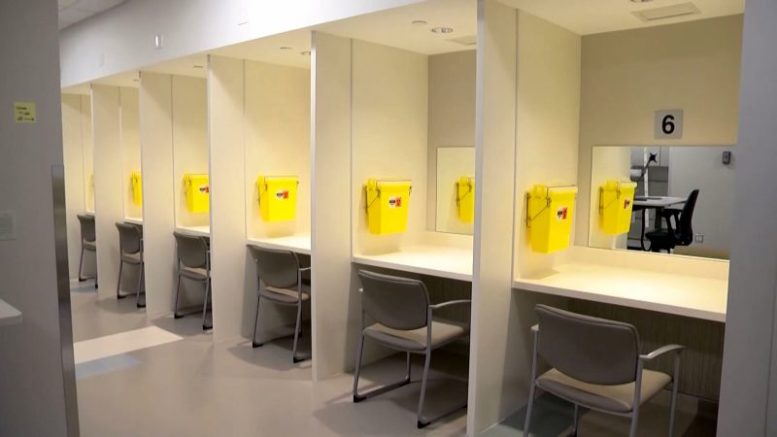By Jeremy Appel, Local Journalism Initiative Reporter
(ANNews) – Starting Jan. 31, people who use drugs will have to provide their health card number to access supervised consumption services after the Court of Queen’s Bench denied an emergency injunction against the policy.
In filing the application for an injunction, Moms Stop the Harm and the Lethbridge Overdose Prevention Society argued that requiring identification requirements would deter people from using supervised consumption sites.
“As long as we criminalize people. we create barriers to accessing services when we ask people for their information,” Moms Stop the Harm co-founder Petra Shulz told Lethbridge News Now.
“People also have had negative experiences with the health system, where again, they’re highly stigmatized and are often poorly treated. So there is mistrust of the health system and the health care number, of course, is the link to that very system that people mistrust.”
While Justice Paul Bezil acknowledged the new policy could cause “irreparable harm,” he maintained that this doesn’t outweigh the need for the provincial government to be able to make policy decisions.
On Thursday, the Alberta Court of Appeal heard an expedited hearing, where lawyer Avnish Nanda, who is representing the plaintiffs, argued that Justice Bezil made a series of errors in reaching his decision, the Edmonton Journal reported.
“The chambers justice’s finding that avoiding the death of numerous marginalized vulnerable people in this province did not provide a public benefit that is greater than temporarily delaying the implementation of state action that is the source of these preventable harms is an aberrant finding, it departs from the acceptable standard,” Nanda said.
“It is a finding that lives of these substance users in Alberta do not matter. It departs from the acceptable standard that the lives of all Canadians are worthy of protection, that we are all entitled to the right to life. “
Nathaniel Gartke, a lawyer representing the Alberta government, maintained the court reached the “only reasonable conclusion” based on the evidence, and that “there was not clear evidence of the harm that an injunction would prevent.”
Gartke said that although the justice agreed there would be irreparable harm, there was no finding of the extent of that harm.
Kenton Puttick from the province’s Associate Ministry of Mental Health and Addictions said the purpose of an ID requirement is “creating standards for documenting clients and developing means of tracking the outcomes of referrals from supervised consumption service providers to other health and social services, including providers of addiction treatment and recovery-oriented services.”
He said collecting personal health card numbers was determined to be the “least intrusive means of collecting health information that would not create undue barriers to clients.”
The government insists anyone without a health card number, or who is unwilling to provide one, won’t be turned away, but Shulz told Lethbridge News Now that she’s concerned this isn’t in writing.
“The statement that is being made does not align with what’s written, and whenever you create ambiguity, you leave room for interpretation, which means that different people will take different approaches,” she said.



Be the first to comment on "ID requirements for supervised consumption go into effect Jan. 31"